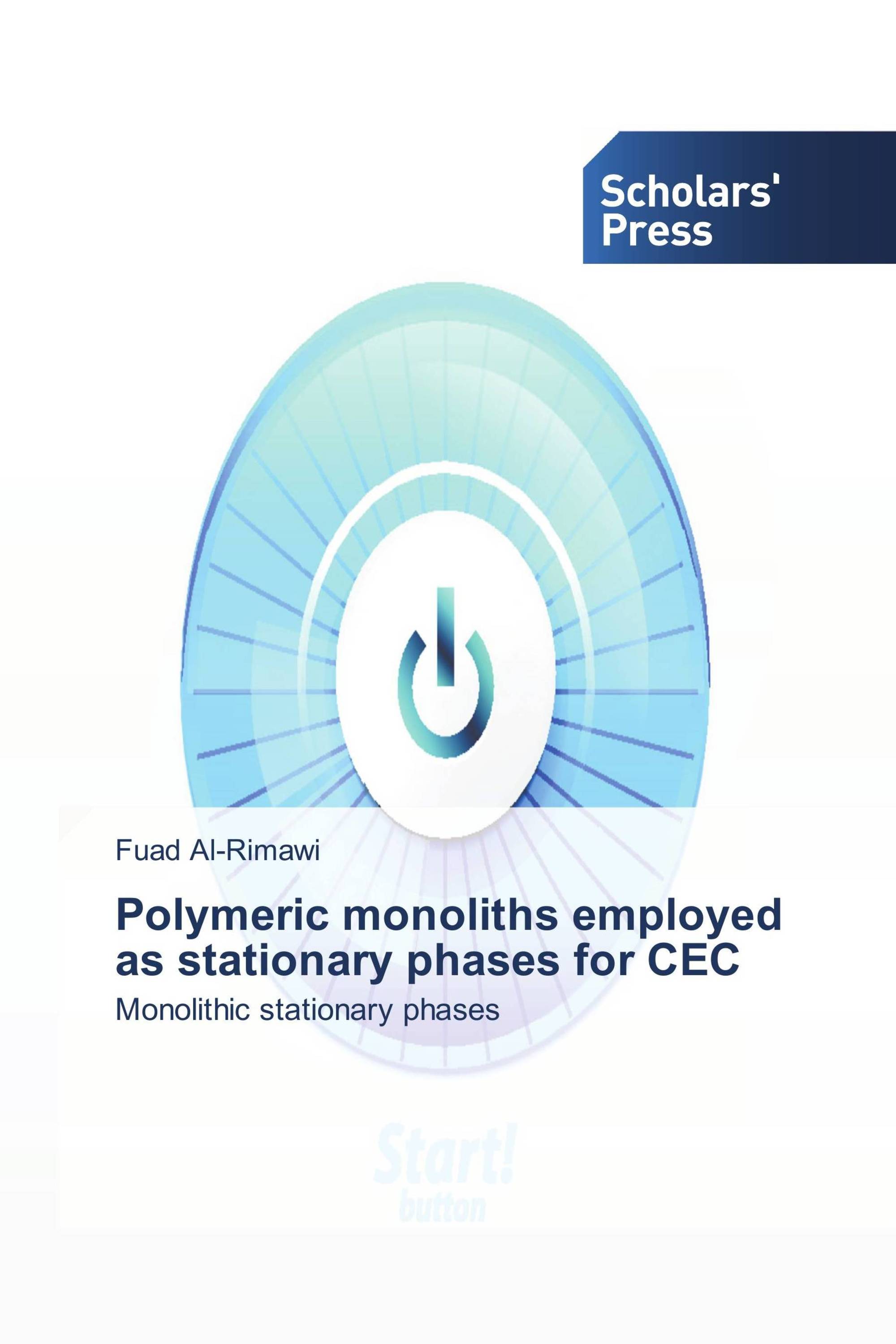Monolithic polymers are used as stationary phases for capillary electrochromatography (CEC) and micro-liquid chromatography (µ-LC). There are two types of such monoliths: silica- and organic polymer-based monoliths. Organic polymer-based monolithic stationary phases have several advantages over silica-based monoliths. The preparation of organic polymer monoliths is simple and straightforward. They are prepared by in situ free radical polymerization of a mixture of monomers dissolved in a porogenic liquid in the presence of an initiator (system) inside a capillary or a microfluidic chip. Monolithic material can be considered as single large particle that does not contain interparticular voids. Therefore, all the mobile phase flow through the stationary phase compared to the convective flow in the conventional particle-based stationary phases, which greatly accelerates the rate of mass transfer. This is particularly useful in separation of large molecules such as proteins, and so such novel stationary phases have many applications in proteomics.Ease of preparation, speed of analysis, and good resolution are two major advantages of monolithic stationary phases.
Book Details: |
|
|
ISBN-13: |
978-3-639-51811-5 |
|
ISBN-10: |
363951811X |
|
EAN: |
9783639518115 |
|
Book language: |
English |
|
By (author) : |
Fuad Al-Rimawi |
|
Number of pages: |
184 |
|
Published on: |
2013-09-05 |
|
Category: |
Chemistry |
